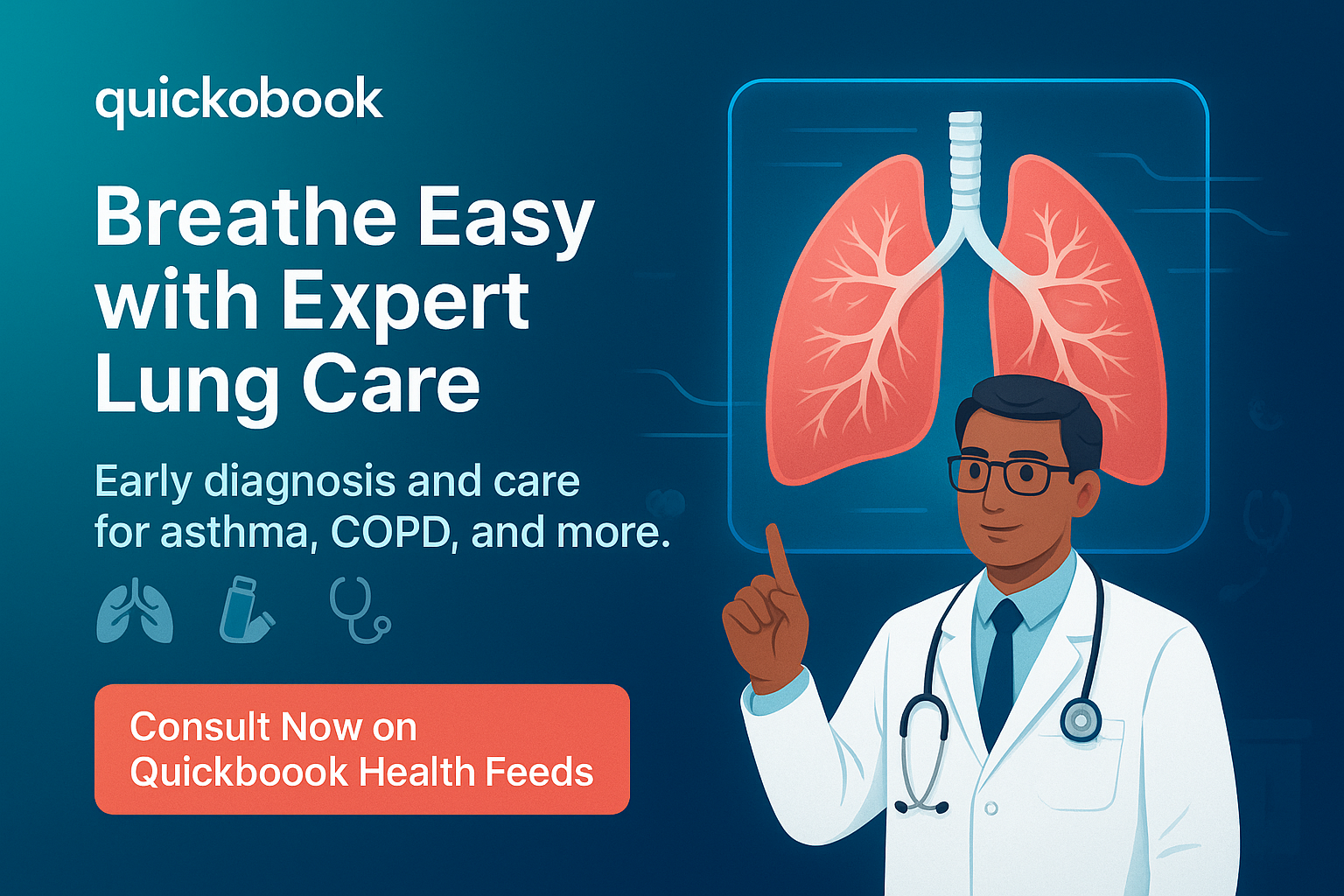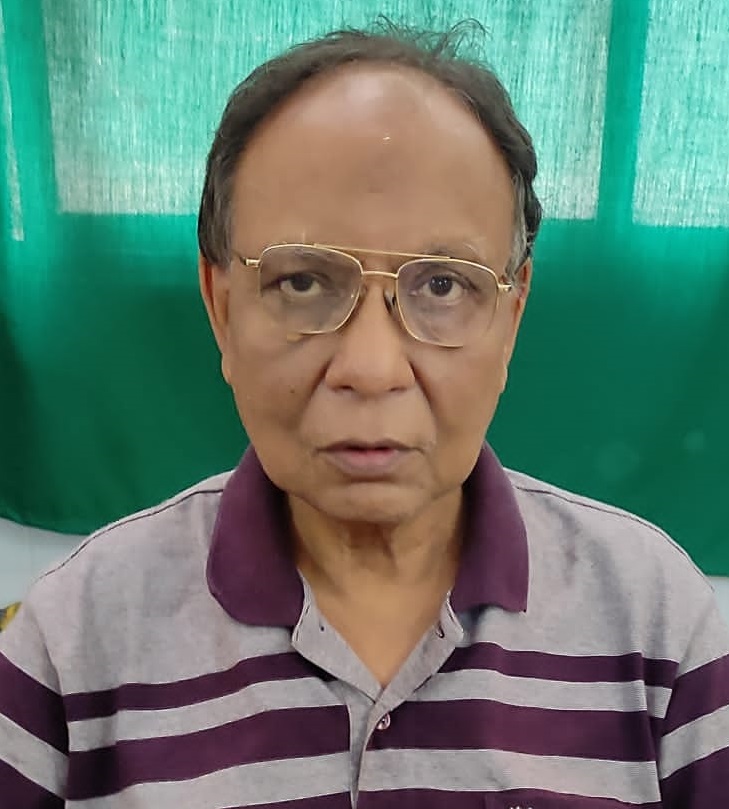Introduction
Breathing is something we often take for granted—until it becomes difficult. Lung diseases like asthma, bronchitis, and chronic obstructive pulmonary disease (COPD) affect millions of Indians every year. If you often feel breathless, experience chronic cough, or have chest tightness, it may be time to consult a pulmonologist—a doctor who specializes in the respiratory system.
This guide explains what pulmonologists do, the common lung diseases they treat, and how you can maintain healthy lungs. Whether you’re managing chronic conditions or seeking preventive care, understanding your lung health is the first step toward better breathing.
What Is a Pulmonologist?
A pulmonologist is a medical specialist who diagnoses and treats diseases related to the lungs and respiratory tract. These include conditions that affect your airways, lung tissue, blood vessels, and breathing muscles.
They often work in coordination with general physicians and critical care doctors, especially in cases involving pneumonia, tuberculosis, or long-term ventilator support.
Common conditions treated by pulmonologists:
- Asthma
- COPD (Chronic Obstructive Pulmonary Disease)
- Interstitial lung disease
- Sleep apnea
- Pulmonary fibrosis
- Tuberculosis (TB)
- Lung cancer
- Chronic cough and allergies
Understanding Lung Diseases
Lung diseases occur when your lungs or airways are damaged, inflamed, or blocked. Some conditions are acute (short-term), while others are chronic (long-term). In India, air pollution, smoking, and infections are major causes of lung-related illnesses.
Types of lung diseases:
- Obstructive diseases: Airflow is restricted (e.g., COPD, asthma).
- Restrictive diseases: The lungs can’t fully expand (e.g., pulmonary fibrosis).
- Vascular diseases: Affect blood flow in the lungs (e.g., pulmonary hypertension).
- Infectious diseases: Caused by bacteria or viruses (e.g., pneumonia, TB).
Causes and Risk Factors
Several environmental and lifestyle factors increase your risk of developing lung disease.
Common causes include:
- Smoking (active or passive)
- Air pollution and industrial fumes
- Long-term exposure to dust and chemicals
- Respiratory infections
- Genetic factors (family history)
- Autoimmune diseases
- Occupational hazards (e.g., mining, construction)
Symptoms of Lung Disease
Recognizing early warning signs helps in timely diagnosis and treatment.
Watch for:
- Persistent cough (more than 3 weeks)
- Shortness of breath during rest or activity
- Wheezing or chest tightness
- Coughing up blood or mucus
- Repeated chest infections
- Fatigue or weight loss
- Bluish lips or fingertips (low oxygen levels)
If these symptoms persist, consult a pulmonologist immediately.
READ ALSO: Ozempic Vs. Longevity Diet: Which Works Better For Weight Loss? Expert Weighs In
Diagnosis by a Pulmonologist
Pulmonologists use various tests to diagnose lung diseases accurately.
Common diagnostic tests:
- Chest X-ray / CT scan: To view lung structure and detect infection or damage.
- Spirometry: Measures how much and how quickly you can exhale air.
- Bronchoscopy: A camera inserted into the lungs to examine airways.
- Pulse oximetry: Checks oxygen levels in blood.
- Arterial blood gas (ABG) test: Evaluates oxygen and carbon dioxide balance.
- Allergy testing: Identifies triggers like dust or pollen.
- Sputum culture: Detects bacterial infections such as TB.
Treatment Options
Treatment depends on the type and severity of your lung disease.
1. Medications
- Bronchodilators: Relax airway muscles (e.g., Salbutamol, Formoterol).
- Corticosteroids: Reduce inflammation.
- Antibiotics: For bacterial infections.
- Antifibrotic agents: Slow progression of pulmonary fibrosis.
- Immunotherapy: Used in allergic asthma.
Always take medicines as prescribed. Dosage and duration depend on your pulmonologist’s evaluation.
2. Oxygen Therapy
Used for patients with severe COPD or lung failure to maintain oxygen levels.
3. Pulmonary Rehabilitation
A supervised program involving exercise, nutrition, and breathing therapy.
4. Lifestyle Management
- Quit smoking immediately.
- Avoid exposure to pollution and second-hand smoke.
- Maintain a healthy diet rich in antioxidants.
- Practice deep-breathing and yoga for lung expansion.
- Stay hydrated to thin mucus.
5. Surgery or Procedures
For advanced conditions like lung cancer or severe fibrosis, surgical interventions or transplants may be recommended.
Living with Lung Disease
Managing lung disease requires long-term care and commitment.
Tips for better management:
- Regularly monitor your breathing and oxygen levels.
- Follow your medication schedule strictly.
- Get vaccinated against flu and pneumonia.
- Practice breathing exercises (Pranayama, pursed-lip breathing).
- Manage stress, as anxiety can worsen breathlessness.
- Schedule regular check-ups with your pulmonologist.
Prevention of Lung Disease
- Quit smoking – it’s the leading cause of COPD and lung cancer.
- Wear masks in polluted environments.
- Improve indoor air quality – avoid incense smoke and dust.
- Exercise daily – walking and yoga improve lung function.
- Get annual check-ups if you’re above 40 or have risk factors.
When to See a Pulmonologist
See a pulmonologist if:
- You have chronic cough or breathlessness.
- Asthma symptoms don’t improve with regular treatment.
- You experience chest pain or tightness frequently.
- You have been exposed to pollution, smoke, or chemicals for years.
- You’ve been diagnosed with a respiratory infection that keeps returning.
Complications of Untreated Lung Disease
Ignoring lung symptoms can lead to:
- Respiratory failure
- Chronic fatigue
- Pulmonary hypertension
- Heart strain
- Oxygen dependence
- Frequent hospital admissions
Conclusion
Your lungs power every breath you take. A pulmonologist helps you protect this vital organ by diagnosing and treating lung diseases early. With proper care, lifestyle changes, and timely medical attention, you can lead a healthy, active life.
Don’t wait until breathing becomes difficult—consult a qualified pulmonologist through Quickobook today and take charge of your respiratory health.
Quickobook CTA
Find trusted pulmonologists near you with Quickobook — India’s reliable healthcare platform for booking verified doctors, getting teleconsultations, and scheduling tests at nearby clinics.
Book your appointment now at www.quickobook.com
50 FAQs About Pulmonologists and Lung Disease
1. What does a pulmonologist treat?
A pulmonologist treats diseases related to lungs, airways, and breathing problems.
2. Do I need a referral to see a pulmonologist?
Not always. You can directly book a consultation via Quickobook.
3. What are the signs I should see a lung specialist?
Persistent cough, breathlessness, or chest tightness are warning signs.
4. Can air pollution cause lung disease?
Yes, long-term exposure can lead to asthma or COPD.
5. Is lung disease curable?
Some are reversible, while chronic ones can be managed effectively.
6. What is the difference between a pulmonologist and a chest physician?
Both specialize in lung health; “pulmonologist” is a broader term.
7. Can non-smokers get COPD?
Yes, due to pollution or occupational exposure.
8. What foods improve lung health?
Fruits, green vegetables, turmeric, and omega-3 rich foods.
9. Can exercise help with lung disease?
Yes, it strengthens breathing muscles.
10. Is asthma a lung disease?
Yes, it’s a chronic condition that affects the airways.
11. How is lung function tested?
Using spirometry or pulmonary function tests.
12. What causes chronic cough?
Allergies, infections, smoking, or acid reflux.
13. Can stress affect breathing?
Yes, anxiety can make breathlessness worse.
14. What is pulmonary rehabilitation?
A therapy program that improves lung strength and endurance.
15. Can COVID-19 cause long-term lung issues?
Yes, some patients develop fibrosis or post-COVID lung weakness.
16. How can I prevent lung infections?
Maintain hygiene, stay vaccinated, and avoid smoking.
17. Can lung disease cause fatigue?
Yes, due to low oxygen levels.
18. Do allergies affect lungs?
Yes, allergens can trigger asthma or bronchitis.
19. Is lung cancer hereditary?
Genetics play a role, but smoking is the top cause.
20. Can children develop lung disease?
Yes, asthma and infections are common in children.
21. How often should I visit a pulmonologist?
At least once a year for chronic patients.
22. Can yoga help improve breathing?
Yes, practices like Anulom Vilom and Kapalbhati help.
23. Can lung disease cause weight loss?
Yes, advanced cases often lead to fatigue and loss of appetite.
24. What is bronchitis?
Inflammation of bronchial tubes causing cough and mucus.
25. Can I live normally with COPD?
Yes, with regular treatment and healthy habits.
26. How is pneumonia treated?
With antibiotics, rest, and oxygen support if severe.
27. Can asthma go away?
It can be controlled, but may not completely disappear.
28. What is sleep apnea?
A condition causing interrupted breathing during sleep.
29. Can I exercise with lung disease?
Yes, under supervision of your doctor.
30. Is it safe to travel by air with lung disease?
Consult your pulmonologist before flying.
31. How can I monitor my oxygen levels?
Using a pulse oximeter.
32. Can lung disease affect the heart?
Yes, it can cause pulmonary hypertension.
33. What is a chest CT scan used for?
To detect infections, tumors, or fibrosis.
34. Can pollution masks prevent lung disease?
They reduce risk by filtering harmful particles.
35. Can lung problems be detected early?
Yes, through routine check-ups and X-rays.
36. Is coughing blood serious?
Yes, it requires immediate medical attention.
37. Can smoking once in a while harm lungs?
Even occasional smoking damages lung tissue.
38. What are bronchodilators?
Medicines that open airways for easier breathing.
39. Can weather changes trigger asthma?
Yes, cold air and humidity often worsen symptoms.
40. Can obesity cause breathing problems?
Yes, excess weight restricts lung expansion.
41. Are herbal remedies safe for lungs?
Only use under medical supervision.
42. Can lung disease cause depression?
Chronic illness can lead to emotional stress.
43. Is shortness of breath after COVID normal?
It can be temporary; consult a pulmonologist.
44. Can lung disease be prevented?
Yes, by avoiding smoking and pollution.
45. What is pulmonary fibrosis?
Scarring of lung tissue that reduces oxygen exchange.
46. Can medications cause lung side effects?
Some drugs can, but your doctor monitors for that.
47. How do I choose the best pulmonologist?
Check qualifications, experience, and reviews on Quickobook.
48. Can home air purifiers help?
Yes, especially in polluted cities.
49. Can lung disease be managed at home?
With regular follow-up, medicines, and clean air.
50. How can Quickobook help?
Quickobook helps you find certified pulmonologists and book appointments online easily.
Disclaimer
This blog is for educational purposes only and should not replace medical advice. Always consult a certified pulmonologist for diagnosis and treatment.










Comments (0)
No comments yet. Be the first to share your thoughts!
Leave a Comment